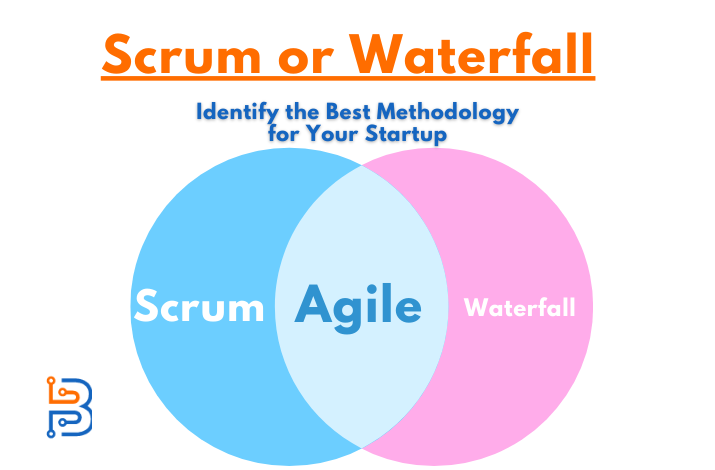Positive Impact of Agile Methodology on Software Development

Agile methodology has revolutionized the traditional way software are conceptualized, designed, and delivered. It has emerged as a game-changer in the software market. Methodologies play a vital role in determining the success of projects, and agile methodology has a positive impact on software development. The Agile methodology focuses on flexibility, collaboration, and iterative development, and its positive effect on software development is evident across various dimensions.
In this article, we will tell you about the positive impact of agile methodology on software development.
What is Agile Methodology?
Agile methodology is a set of principles and practices that guide software development in a flexible, iterative, and collaborative manner. It highlights adaptability to changing requirements, customer collaboration, and the delivery of working software in short periods, known as sprints or iterations.
Impact of Agile Methodology on Software Development
Software development requires an effective method that can impact it positively. Agile methodology has the ability to impact software development in an effective and positive manner. Here, you can get some of the efficient features of agile methodology that have the ability to impact software development positively:
Faster Time-to-Market
One of the standout features of Agile is its intensity of providing total, working software at the end of each iteration or sprint. This approach allows software development teams to release software quickly in the market. In addition, It also enables software development teams to respond promptly to changing market demands or user feedback. The outcome is a shorter time-to-market that provides a competitive edge in industries where speed is prominent.
Enhanced Customer Satisfaction
Agile methodologies place a substantial priority on customer collaboration throughout the development process. Regular stakeholder interactions allow teams to collect continuous feedback and adjustments. This process ensures that the final product aligns with customer expectations and requirements. This iterative feedback loop minimizes the risk of building a product that does not meet user requirements, leading to higher customer satisfaction.
Adaptability to Changes
Traditional waterfall methodologies struggle to accommodate differences once the project is underway. In contrast, Agile adopts change and even expects it. With the flexibility to adjust project scope and priorities at the end of each iteration, Agile teams can easily incorporate new requirements, technologies, or market shifts without causing significant disruptions.
Effective Risk Management
The agile method reduces the risks by making small patches of projects that can be manageable units. These parts or patches are called iterations, and each iteration results in a working component of the software. This process has the ability to reduce the chance of large-scale project failure. If an issue arises, it is identified and addressed early in the development process. This leads the project to better risk management and higher project success rates.

Improved Team Collaboration
Collaborative work sessions are helpful for businesses to decide on where cross-functional teams can work together closely. Agile methodology has the ability to provide such an environment to a business to enhance its productivity. Daily stand-up meetings, sprint planning sessions, and regular reviews facilitate clear communication and knowledge sharing. This collaborative method enhances a sense of ownership and responsibility among team members, which leads to higher engagement and productivity.
Continuous Quality Improvement
Quality assurance is integrated into Agile methodologies. You should do regular testing, continuous integration, and frequent code reviews to ensure that software quality is maintained throughout the development process. It is necessary that defects are caught and fixed sooner, that can result in a higher-quality end product. This approach will help you detect threats and set them on time without any disadvantage.
Read Also: Software Testing Trends That Are Here to Rule 2023
Transparency and Visibility
Agile methodologies promote transparency by making project progress visible to all stakeholders. Burndown charts, task boards, and sprint reviews provide real-time insights into the status of the project. This transparency improves trust among team members and stakeholders and facilitates informed decision-making. Transparency aids businesses in building healthy relationships with customers and stakeholders.
Empowerment and Motivation
Empowering team members to make decisions and contribute to project planning allows for progress. Agile methodologies empower team members to build a sense of understanding that everyone is responsible. This autonomy fosters a sense of ownership and responsibility, leading to higher motivation and job satisfaction among team members.
Global Collaboration
Agile methodologies facilitate global collaboration among distributed teams in today’s interconnected world. With the right tools and practices, teams from different geographical locations can work seamlessly together and can leverage diverse expertise and perspectives to create better software. This method or practice will help you to get a better understanding of the project and get suggestions to make the project better than before.
Conclusion
The Agile methodology has brought about a paradigm shift in the world of software development. Its positive impact is far-reaching, from speeding up development cycles to enhancing customer satisfaction and fostering collaboration. As the software development landscape continues to evolve, agile remains a cornerstone for delivering high-quality software products that meet the dynamic needs of users and markets. This is the time when businesses or software developers should adopt an agile methodology to make their outcomes effective. This will also help y9ounto get an edge over your competitors in the market.






